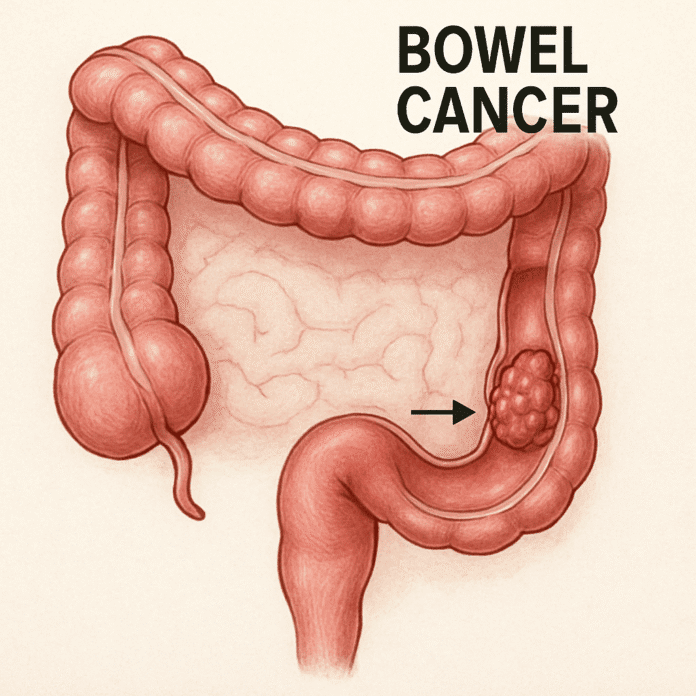Overview
Bowel cancer, also known as colorectal cancer, is a malignant tumor that forms in the colon or rectum, which are parts of the large intestine. It typically develops from small growths called polyps that form on the inner lining of the bowel. Over time, some polyps can become cancerous. Bowel cancer is among the most common cancers globally, but early detection through screening greatly improves treatment outcomes and survival rates.
Commonly Associated
Other names and terms for bowel cancer include:
- Colorectal cancer (CRC)
- Colon cancer
- Rectal cancer
- Large bowel cancer
Causes
While the exact cause is not always known, several factors increase the risk of developing bowel cancer:
- Genetic predisposition – Family history of colorectal cancer or inherited syndromes such as Lynch syndrome and familial adenomatous polyposis (FAP).
- Age – Most cases occur in individuals over 50.
- Diet – Diets high in red or processed meats and low in fiber.
- Lifestyle – Sedentary lifestyle, smoking, and excessive alcohol consumption.
- Chronic inflammatory bowel disease – Long-standing ulcerative colitis or Crohn’s disease.
- Obesity and diabetes – Both associated with higher risk.
Symptoms
Symptoms often develop slowly and may vary depending on tumor size and location. Common signs include:
- Persistent changes in bowel habits (diarrhea, constipation, or narrower stools)
- Blood in stool or rectal bleeding
- Abdominal pain, cramping, or bloating
- Unexplained weight loss
- Fatigue or weakness caused by anemia
- A persistent feeling of incomplete bowel emptying
Because early bowel cancer may have no symptoms, regular screening is essential.
Exams & Tests
Several diagnostic tests are used to detect bowel cancer and determine its stage:
- Fecal occult blood test (FOBT) – Checks for hidden blood in stool.
- Colonoscopy – Allows direct visualization and biopsy of the colon and rectum.
- Sigmoidoscopy – Examines the lower colon and rectum.
- CT colonography (virtual colonoscopy) – Produces detailed images of the large intestine.
- Blood tests – Detect anemia and monitor tumor markers like CEA.
Treatment
Treatment depends on the cancer stage, tumor location, and overall patient health:
- Surgery – The primary treatment, removing the tumor and nearby lymph nodes.
- Chemotherapy – Administered before or after surgery to shrink tumors or destroy residual cancer cells.
- Radiation therapy – Often used in treating rectal cancer.
- Targeted therapy and immunotherapy – Advanced treatments targeting specific cancer cell pathways or enhancing immune response.
- Palliative care – Focused on symptom relief and quality of life in advanced cases.
Early-stage bowel cancer can often be cured with surgery, while advanced stages require a combination of therapies.
Source
- American Cancer Society – Colorectal Cancer Information
- National Cancer Institute – Colorectal Cancer Overview
- National Health Service (NHS) – Bowel Cancer Guide



